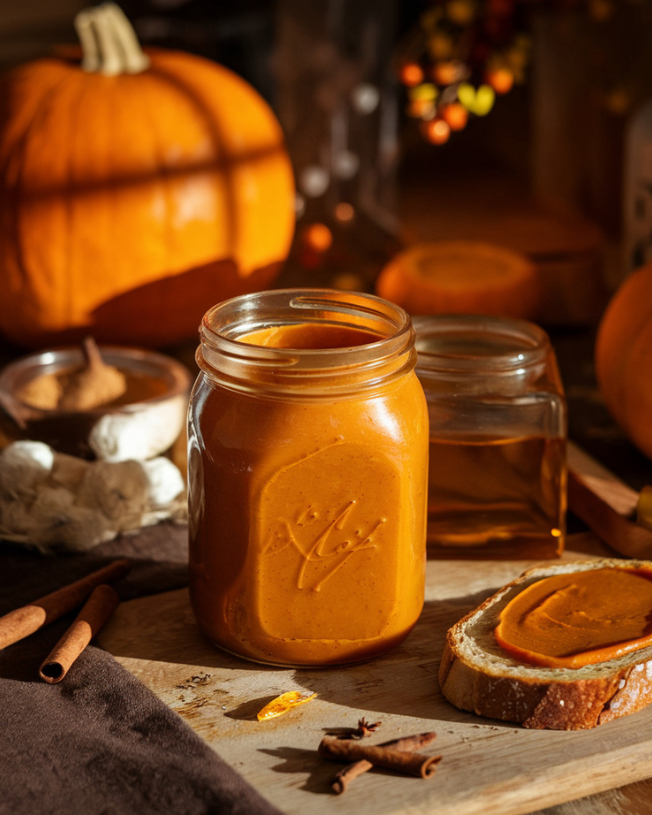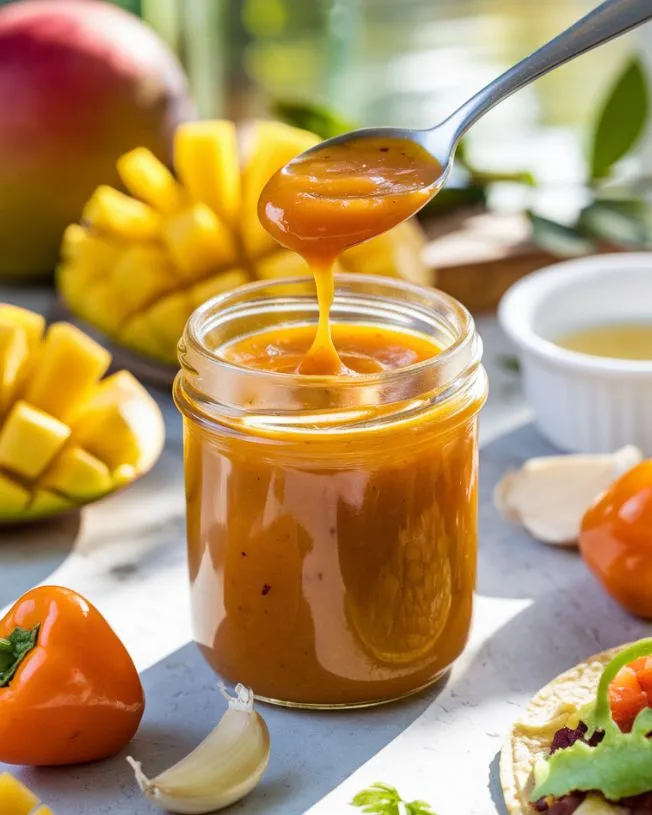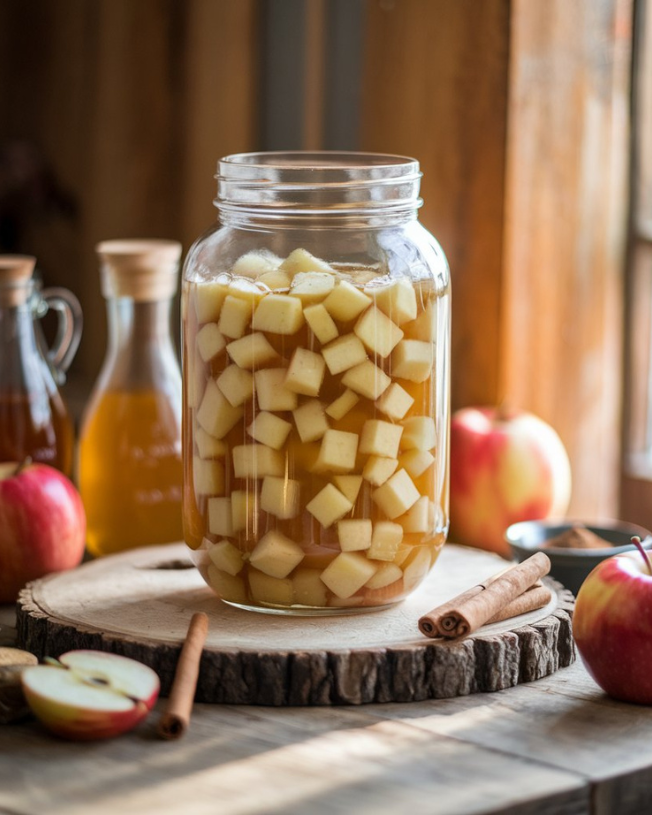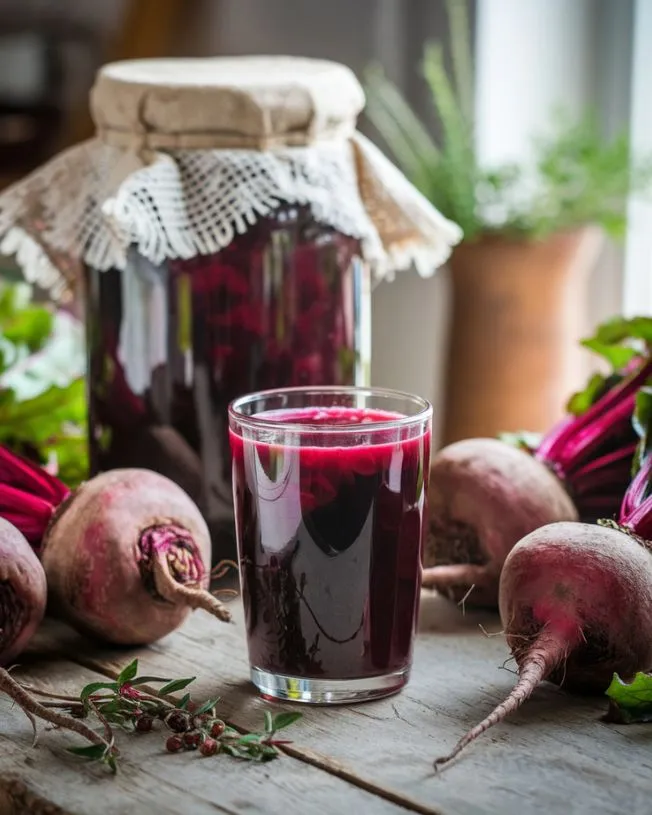There’s something magical about the way preserved Moroccan lemons transform a dish. Have you ever wondered how a simple lemon could unlock layers of bold, tangy, and salty flavors that elevate even the most basic recipes? These vibrant, fermented lemons are a cornerstone of Moroccan cuisine, cherished for their ability to brighten stews, salads, and sauces with minimal effort.
Table of Contents
ToggleWhether you’re a seasoned cook or just starting your culinary journey, making preserved lemons at home is surprisingly easy and deeply rewarding. With just a handful of ingredients and a little patience, you’ll create a jar of sunshine that adds a unique twist to your favorite meals. Let’s dive into this flavorful adventure together!
Why Are Preserved Moroccan Lemons So Popular?
Preserved lemons are a staple in Moroccan cuisine and a key ingredient in dishes like tagine—a slow-cooked stew. The preservation process softens the lemon’s natural bitterness, leaving behind a smooth, mellow taste with intense citrus notes. Unlike fresh lemons, preserved lemons add depth and complexity without overpowering other ingredients.
Traditionally, preserving lemons was a practical way to ensure that citrus fruits could be enjoyed year-round. But beyond convenience, the unique flavor of these lemons has become beloved around the world, inspiring cooks everywhere to try their hand at preserving this ingredient.
Health Benefits of Preserved Lemons
Preserved Moroccan lemons are more than just a flavorful ingredient—they’re a game-changer in your kitchen. Here’s why you’ll love having them on hand:
- Versatility in Cooking: From stews and salads to sauces and marinades, these lemons effortlessly elevate a variety of dishes with their bold, tangy flavor.
- Flavor Enhancement: The fermentation process softens the lemons’ sharpness, leaving behind an intense, savory-sweet taste that enhances both sweet and savory recipes.
- Health Boost: Packed with vitamin C and antioxidants, preserved lemons support your immune system and aid digestion.
- Long Shelf Life: With proper storage, these lemons can last for months, giving you a pantry staple that’s always ready to add a burst of flavor.
- Culinary Tradition: Embrace the heart of Moroccan cooking and connect with a time-honored tradition that brings global flavors to your table.
Nutritional Information
Preserved Moroccan lemons are not just a culinary delight—they also come with a surprising array of nutritional perks. Here’s what makes them a healthy addition to your meals:
- Low in Calories: Despite their rich, bold flavor, preserved lemons are low in calories, making them a guilt-free way to enhance your dishes.
- Rich in Vitamin C: Lemons are known for their immune-boosting vitamin C content, which helps fight off colds and supports skin health.
- Antioxidant Properties: The natural compounds in lemons act as antioxidants, protecting your cells from oxidative stress and promoting overall wellness.
- Digestive Support: Fermentation can enhance the lemons’ probiotic potential, aiding digestion and promoting gut health.
Ingredients Needed
Before diving into the recipe, let’s gather everything you’ll need to make preserved Moroccan lemons. Each ingredient plays a crucial role, so be sure to choose the best quality available for the most flavorful results.
Here’s what you’ll need:
- Fresh Lemons (6–8 medium-sized): Organic lemons are highly recommended since the rind is the star of the show, and you’ll want to avoid any wax or pesticides.
- Kosher Salt (½–¾ cup): A coarse, non-iodized salt is ideal for drawing out moisture and kickstarting the fermentation process.
- Filtered Water (optional): To top off the jar if needed. Use filtered water to avoid any impurities that might affect the flavor.
- Spices (optional): Add bay leaves, peppercorns, or cinnamon sticks for an extra layer of complexity.
- Sterilized Glass Jar (1 large or 2 medium): An airtight jar is essential to keep your lemons safe during fermentation.
Why these ingredients matter:
- The lemons’ freshness ensures vibrant, zesty flavors.
- Salt is not just for seasoning—it acts as a preservative and draws out the lemons’ natural juices.
- Spices allow you to customize your preserved lemons, making them uniquely yours.
- Using a sterilized jar prevents contamination, ensuring your lemons ferment safely and develop beautifully.
How to Make
Making preserved Moroccan lemons is a simple process that requires minimal effort but delivers maximum flavor. Follow these step-by-step instructions to create your own jar of citrus magic:
1: Prepare the Lemons
- Wash and Scrub: Rinse the lemons thoroughly under cold water and scrub off any dirt or wax. Pat them dry with a clean towel.
- Trim the Ends: Slice off the stem and blossom ends of each lemon to remove the tough parts.
2: Cut and Salt
- Quarter the Lemons: Slice each lemon lengthwise into quarters, but leave them attached at the base so they fan out.
- Add Salt: Generously sprinkle kosher salt inside each lemon, ensuring the flesh and rind are well coated.

3: Pack the Jar
- Layer the Lemons: Place a tablespoon of salt at the bottom of the sterilized jar, then tightly pack the salted lemons inside, pressing down to release their juices.
- Add More Salt and Juice: Between layers, sprinkle additional salt and press down firmly. If the lemons aren’t fully submerged in their own juices, top off with fresh lemon juice.

4: Seal and Store
- Seal the Jar: Close the jar tightly to create an airtight environment for fermentation.
- Ferment: Leave the jar at room temperature for 3–4 weeks, shaking it daily to redistribute the salt and juices.
5: Ready to Use
After fermentation, the lemons will soften, and their flavor will mellow into a tangy, salty delight. Store the jar in the refrigerator, where the preserved lemons can last for up to six months.
Bonus Tip:
Don’t throw away the brine! It’s packed with flavor and can be used to season dishes like soups, marinades, or salad dressings.
If you loved this recipe, please consider giving it astar rating and sharing
your experience in thecomments below!
More Fermented Recipes you’ll love:
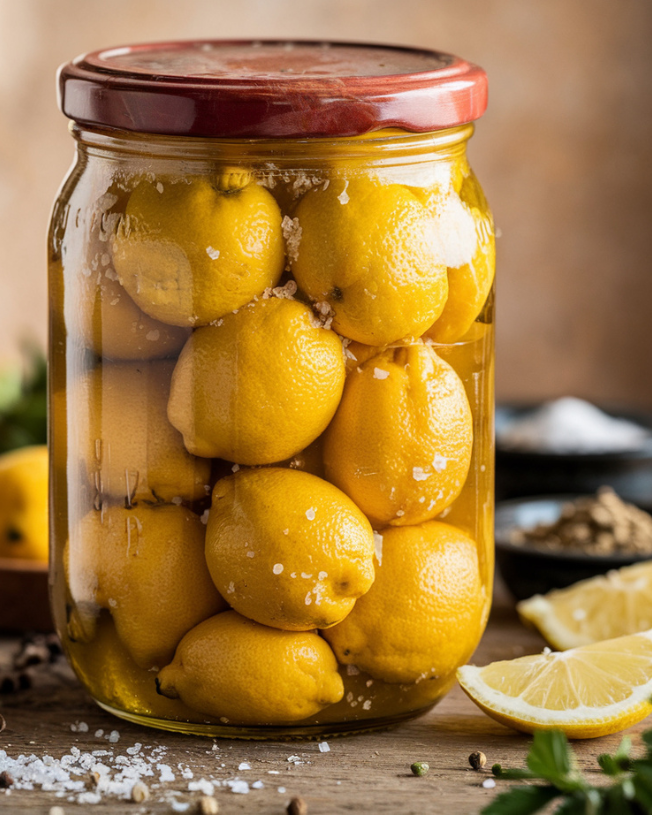
Preserved Moroccan Lemon
Ingredients
Ingredients Needed:
- 5-6 medium lemons organic preferred
- 1/4 cup kosher salt plus extra for topping
- Freshly squeezed lemon juice as needed to fill the jar
- Optional: 2-3 bay leaves whole spices (e.g., cinnamon stick, cloves)
Instructions
Instructions
- Prepare the Lemons:
- Scrub the lemons clean and cut a deep “X” into each one, leaving the quarters attached at the base.
- Salt the Lemons:
- Pack each lemon generously with salt, pressing it into the cuts.
- Pack the Jar:
- Place the lemons in a sterilized jar, pressing firmly to release juices. Sprinkle extra salt between layers and add optional spices.
- Fill with Juice:
- Add freshly squeezed lemon juice to cover the lemons completely.
- Seal and Ferment:
- Seal the jar tightly and leave at room temperature for 3-4 weeks. Shake the jar occasionally to redistribute the salt and brine.
- Store and Use:
- Once fermented, store the jar in the refrigerator. Rinse lemons before use to reduce saltiness. Use the rind for tagines, marinades, and more!
Video
Notes
- Salt Variation: You can adjust the amount of salt depending on your taste, but traditionally, a generous amount is used to help with the fermentation process and preserve the lemons. If the lemons taste too salty after fermentation, rinse them before using.
- Fermentation Time: The flavor of the lemons becomes more intense the longer they ferment. Check them after 3 weeks and allow more time if you prefer a stronger taste.
- Jar Size: Ensure your jar is large enough to fit the lemons snugly, leaving space for the brine to cover them fully. You may need to add extra lemon juice to ensure they’re submerged.
- Storage: Once fermented, keep the preserved lemons in the fridge. They will last up to a year when stored properly.
- Uses: The rind is the most commonly used part, but the pulp can also be used in certain dishes. Experiment with both for different flavor profiles in your meals.
Pro Tips and Variations:
Making preserved Moroccan lemons is an incredibly rewarding process, and with a few simple pro tips, you can ensure your lemons turn out perfectly every time. Here are some insider suggestions to help you elevate your recipe:
1. Use Organic Lemons
For the best flavor and safety, always opt for organic lemons. Since you’ll be using the entire lemon, including the rind, organic varieties are free from pesticides and often unwaxed, ensuring a clean, natural taste.
2. Adjust the Salt to Taste
The amount of salt can be adjusted based on your personal preference. Some like their preserved lemons saltier, while others prefer a more subtle flavor. If you’re unsure, start with the lower end of the salt range, and you can always add a little more after tasting the final product.
3. Add Custom Spices
While traditional preserved Moroccan lemons typically use just salt, you can get creative with your spices. Try adding:
- Bay leaves for an earthy aroma
- Cinnamon sticks for a warm, sweet touch
- Peppercorns for a mild kick
Experiment with different spice combinations to match your taste preferences or to complement specific dishes.
4. Be Patient
Fermentation takes time, and the longer the lemons sit, the more their flavors will deepen. Don’t rush the process! Be sure to let them ferment for at least 3–4 weeks, but the flavor will continue to develop over time, and you’ll notice even more complexity after a few months.
5. Top Off the Jar with Fresh Lemon Juice
If the preserved lemons aren’t fully submerged in their own juices, add a bit of fresh lemon juice to top it off. This ensures that the lemons stay properly preserved and helps maintain their vibrant color.
6. Try Using the Rind and Flesh
When you’re ready to use your preserved lemons, don’t forget to incorporate both the rind and flesh into your recipes. The rind offers the most intense flavor, while the flesh adds a tender, slightly sweet contrast. Scrape out any excess pulp from the rind before using it.
7. Refrigerate After Fermentation
Once the fermentation is complete, move your jar to the refrigerator to slow down the process. This will ensure the lemons stay fresh and continue to develop flavor over the months.
Serving Suggestions:
Preserved Moroccan lemons are incredibly versatile, and once you’ve made them, you’ll find endless ways to incorporate them into your meals. Whether you’re looking to add depth to a savory dish or brighten up a salad, these lemons bring an irresistible tang and complexity that will elevate any recipe. Here are a few delicious ideas to get you started:
1. Moroccan Tagines
A classic Moroccan tagine is the perfect canvas for preserved lemons. The rich, slow-cooked flavors of lamb, chicken, or vegetables blend beautifully with the salty, citrusy kick of preserved lemons. Simply slice them thinly and stir them into your tagine during the final stages of cooking.
2. Salads and Grain Bowls
Sprinkle preserved lemon into a fresh salad for a vibrant, zesty punch. Try it with mixed greens, quinoa, or couscous. The brightness of the lemons pairs wonderfully with roasted vegetables and tangy dressings. For an extra boost, add a handful of olives and fresh herbs!
3. Marinades and Sauces
Use preserved lemons as the base for a marinade for chicken, fish, or tofu. Their bold flavor pairs especially well with Mediterranean-inspired dishes. Blend with olive oil, garlic, and herbs to create a quick, punchy sauce that will take your grilled meats or roasted vegetables to the next level.
4. Dips and Spreads
Mash up preserved lemons and blend them into hummus or yogurt-based dips. The saltiness and acidity will cut through the richness and make your dips stand out. Add a little garlic and tahini to complete the flavor profile.
5. Roasted Vegetables
Toss preserved lemons with your favorite root vegetables—such as carrots, sweet potatoes, or beets—before roasting. The preserved lemons will infuse the vegetables with a deep, savory flavor, adding a unique twist to this simple side dish.
6. Grilled Fish or Meat
Preserved lemons are the perfect topping for grilled fish or meat. The saltiness complements the smokiness from the grill, and the citrus adds a refreshing contrast. For a simple dish, just chop the lemons into small pieces and sprinkle them over your grilled dish along with a dash of olive oil.
7. Dressings and Sauces
Incorporate preserved lemons into salad dressings or vinaigrettes for a punch of flavor. Their bright acidity can replace vinegar or lemon juice, bringing a deeper, more complex note to your dressings.
8. Sandwiches and Wraps
Add preserved lemons to your sandwiches or wraps for a burst of flavor. They work particularly well with chicken, tuna, or even roasted vegetable wraps. Their tanginess can brighten up a heavy sandwich, turning it into something extraordinary.
Conclusion:
Making preserved Moroccan lemons at home is not only a rewarding culinary project, but it also opens the door to a world of vibrant flavors. Once you taste the depth they bring to your dishes, you’ll wonder how you ever cooked without them!
These tangy, salty lemons are a true gem in Moroccan cuisine and an essential ingredient for creating dishes with layers of flavor. From brightening up salads to enhancing stews, preserved lemons are a versatile addition to any kitchen. The process may take a few weeks of waiting, but the result is well worth the patience.
Whether you use them sparingly to add a zing to your sauces or incorporate them as a starring ingredient in your next tagine, preserved Moroccan lemons bring a special, authentic touch to your cooking.
So, are you ready to embark on this flavor-packed journey? With just a few simple ingredients and a bit of time, you’ll soon be enjoying the unique taste of homemade preserved lemons and taking your meals to the next level. Happy cooking.
FAQS
How long can you leave preserved lemons?
Preserved lemons can last for up to 1 year if stored properly in a cool, dark place or the refrigerator. Over time, their flavor intensifies, but they should remain safe to eat as long as they are fully submerged in brine and show no signs of spoilage.
2. How to know if preserved lemons have gone bad?
Signs that preserved lemons have gone bad include:
- Off-putting smell: A sour or rancid odor instead of a fresh, tangy aroma.
- Mold growth: Visible mold on the lemons or in the brine.
- Change in texture: Excessive sliminess or a mushy consistency.
- Brine discoloration: Dark or murky brine that doesn’t clear up after shaking.
3. Do preserved lemons need to be covered in liquid?
Yes, preserved lemons must always be covered in liquid (usually salty brine) to prevent exposure to air, which can lead to spoilage or mold growth. Ensure the lemons are fully submerged, and top up the brine if necessary.
4. Do you put preserved lemons in the fridge?
While preserved lemons don’t require refrigeration if stored in a sterile jar in a cool, dark pantry, refrigeration can prolong their freshness and prevent accidental spoilage.
5. Are preserved lemons shelf-stable?
Yes, preserved lemons are shelf-stable if stored in a sterile jar with sufficient brine, away from heat and direct sunlight. However, for long-term storage, refrigeration is safer.
6. Why are my preserved lemons cloudy?
Cloudiness in the brine is typically caused by salt crystallization or natural fermentation, which is harmless. If there’s no foul smell or mold, the lemons are still safe to consume.
7. Can preserved lemons get moldy?
Yes, if the lemons are not fully submerged in brine, mold can develop. Always keep the lemons covered with liquid and ensure the jar is sealed tightly.
8. How long can lemons last without refrigeration?
Fresh lemons can last about 1-2 weeks at room temperature, depending on humidity and temperature. Preserved lemons, however, can last much longer if stored correctly.
9. Are preserved lemons supposed to be slimy?
A slight sliminess is normal due to the breakdown of the lemon rind during preservation. However, excessive sliminess or a slippery feel, combined with a bad odor, could indicate spoilage.

 star rating and sharing
star rating and sharing  comments below!
comments below!
